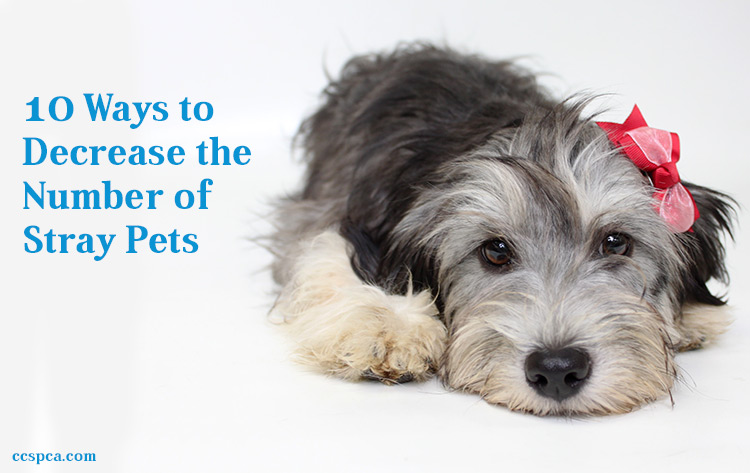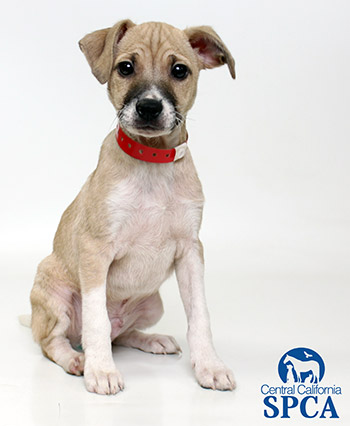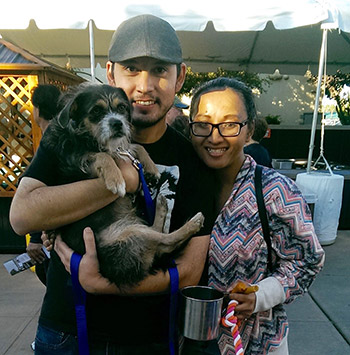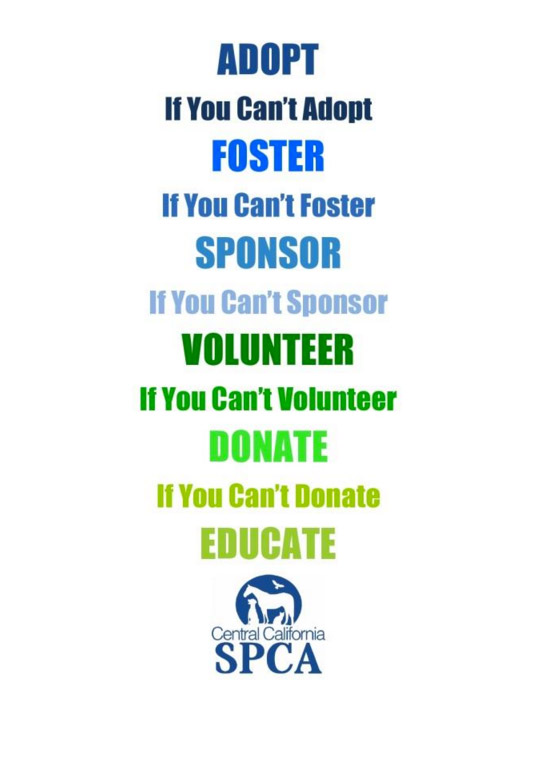
Stray Animals – The Staggering Numbers
It’s no secret that homeless animals are a problem in our Central Valley and across the United States. Pet overpopulation stems from several factors: cats and dogs reproducing with little chance of their offspring finding homes, lack of spaying or neutering, pet owners relinquishing their pets to shelters, and irresponsible pet owners. 2.4 million healthy, adoptable cats and dogs are euthanized in U.S. shelters each year due to pet overpopulation.
In 2014-2015, more than 24,800 cats and dogs came to our shelter. That’s 24,800 cats and dogs that don’t have a home, are lost, came from owner surrenders, and transfers from other shelters.
To give you a comparison of how dire this situation is for the California and the Central Valley, let’s review the intake of other California shelters. The San Diego Humane Society’s animal intake for the 2013-2014 year was a little over 9,000. The Sacramento SPCA’s intake for 2014 was over 6,900, and San Francisco SPCA’s intake was near 4,800.
As you can see, we receive four to seven times more animals than other shelters in California.
If you think these numbers are alarming, it’s because they are. We, as a community, need to make a difference. We can make a change.
We need this community’s help to decrease the number of stray and homeless pets in Fresno city and county.
You can make a difference: here’s how.
How You Can Make an Impact on the Numbers
1. Spay or Neuter Your Pet
Spaying and neutering your pet is the best thing you can do to help prevent pet overpopulation in the Central Valley. The key is to prevent the problem before it begins.
Spay and neuter procedures are common surgeries performed by veterinarians while your pet is under anesthesia. Female animals are spayed by removing their ovaries and uterus, and male animals are neutered by removing their testicles. Spaying or neutering also has other physical, behavioral, and environmental benefits. For more information about these advantages, please visit our website at ccscpa.com.
We offer a low-cost spay and neuter program called Hip, Snip, Hooray. It provides an affordable price to the community to prevent unwanted pets. Hip, Snip, Hooray prices for spay or neuter surgery range from $29 to $134, depending on the weight of your pet. That is considerably less than what it would cost to care for a litter of puppies or kittens.
We also offer a program for low-income families called Snip n Chip. If you qualify for the Snip n Chip program, the price for a spay or neuter is only $35 per pet (four pets total per person) and includes a free microchip.
2. Adopt an Animal from the CCSPCA
Instead of purchasing a pet from a breeder or pet store, adopt from our adoption center or one of our off-site  locations. When you adopt from the CCSPCA, your adoption fee includes a spay or neuter surgery, microchip & registration, vaccinations (dogs – rabies & DHPP, cats – FVRCP), dewormer, a free vet exam, one month of flea/tick preventative, and a gift/offer of $750 in pet insurance.
locations. When you adopt from the CCSPCA, your adoption fee includes a spay or neuter surgery, microchip & registration, vaccinations (dogs – rabies & DHPP, cats – FVRCP), dewormer, a free vet exam, one month of flea/tick preventative, and a gift/offer of $750 in pet insurance.
Since the adoption fee includes all of these services, it saves you time and money. These services would normally cost between $194 to $396 or more at other veterinary hospitals. By having these services already completed, your time spent at a veterinary clinic is reduced.
When you adopt a pet, you’re a hero by saving a life. Not only are you providing a forever home, but you’re also reducing the number of homeless pets in our community.
3. Microchip Your Pet
The American Humane Association estimates that 10 million dogs and cats get lost in the United States every year. Many pets end up at our shelter because they get lost. Unfortunately, most of these pets are not reclaimed by their owners and are put up for adoption. At the CCSPCA, we see an increase in lost pets during the Fourth of July and New Year’s. Pets are often frightened by loud noises or fireworks and get lost by trying to find a safe place to hide.
Microchips can reunite lost pets with their owners quickly, easily, and efficiently. When you microchip your pet, it provides a peace of mind that should your pet become lost, they will be returned to you.
We offer low-cost microchipping and sometimes have microchipping specials. Microchipping is available daily at the CCSPCA Small Animal Hospital, by appointment only, and on Wednesdays at our adoption center. Please contact the hospital at 559-237-1125 to schedule an appointment.
4. Educate Your Children, Family Members, Friends, and Co-Workers
30,000 homeless pets cross our door yearly. If that statistic was shocking to you, you’re not alone. Many Central Valley residents are unaware of how severe our pet overpopulation has become. Being aware is only half the battle. Help us combat pet homelessness by educating others in our community.
Our education department focuses on the importance of spaying and neutering with an emphasis on the impact of pet overpopulation in the Central Valley. We have special classes, offer tours, presentations, and work with many schools in the valley to help share the message of how this community can help end pet homelessness.
Share the importance of spaying and neutering with friends and neighbors. Let them know that there are affordable options for spaying and neutering, and that by doing so; they can make an impact on the number of homeless pets in the Central Valley.
5. Think Before You Breed or Purchase from a Breeder
The Central California SPCA (CCSPCA) believes there is a place for responsible breeding of companion animals. However, inhumane and inadequate breeding facilities exist; therefore, we encourage individuals to exercise caution when purchasing animals from breeders and to consider alternative means for acquiring companion animals.
The CCSPCA believes that adoption through humane societies and rescue organizations is critical. Because of the number of animals in need of homes, we advocate that people choose to adopt rather than purchase a pet.
Shelters and breed specific rescue organizations shelter and place purebred animals, many of which would otherwise be euthanized or abandoned by breeding operations. Also, mixed breed animals often display the personality traits and characteristics one associates with a purebred animal, often without the health disorders found in certain pure breeds.
Purchasing from a breeder
Responsible breeding operations play a role in preserving and enhancing the very best characteristics of their breeds and are committed to the humane care of their breeding animals and their breeding animals’ offspring.
The CCSPCA recognizes the role of exceptional breeders that are committed to exceptional care of their animals and those that educate themselves to recognize inherited disorders and sterilize animals that could pass on these disorders.
The CCSPCA also encourages breeders to educate themselves on pet overpopulation and make breeding choices that do not further contribute to this pervasive problem.
If people do choose to purchase animals from a breeder, the CCSPCA encourages them to diligently research potential breeders to ensure they’re not supporting inhumane and inadequate breeding practices. Some of the characteristics common to irresponsible breeders are as follows:
- sub-standard health and/or environmental conditions
- sub-standard animal care, treatment and/or socialization
- sub-standard breeding practices which lead to genetic defects or hereditary disorders
- erroneous or falsified certificates of registration, pedigrees and/or genetic background
6. Keep Your Pet For Life

Before you adopt or, buy a pet understand the commitment you’re making. Dogs and cats can live upwards to 13-15 years, some even longer. Pets are your responsibility for their lifetime. Puppies and kittens may be cute when they’re young, but how will you feel when they’ve lost their cuteness and started to gray? Will you still love them the same or will you surrender them to a shelter? It’s no secret that senior pets are the last to get adopted, and they are less likely to adapt to a shelter setting.
Evaluate your lifestyle and determine if bringing a pet into your home is the best for both you and the pet. Determine what type of pet you’re looking for and choose a breed that best fits your lifestyle. For guidance on how to choose the right pet, please read our guide on how to choose the right dog for you.
7. Fight Puppy Mills
According to the ASPCA, there are an estimated 10,000 puppy mills in the United States.
“Puppy mills are inhumane commercial dog breeding facilities that sell puppies in pet stores, online, or directly to the public. Puppy mills usually house dogs in overcrowded and unsanitary conditions, without adequate veterinary care, food, water, and socialization.” (ASPCA)
Although the Animal Welfare Act passed a federal law to regulate commercial dog and cat breeding in 1966, it doesn’t stop puppy mills the way they treat the animals they house.
Puppy mills disregard the animal’s health and are only in business for profit. “In order to maximize profits, female dogs are bred at every opportunity with little to no recovery time between litters. When, after a few years, they are physically depleted to the point that they no longer can reproduce, breeding females are often killed.” (Source – ASPCA)
One way to combat puppy mills is not to shop at pet stores that purchase puppies from puppy mills. However, the best thing you can do is adopt.
If you know of a puppy mill that is being cruel to dogs or cats, report them to the Humane Society of the United States.
8. Donate to Spay and Neuter Programs
The CCSPCA is able to provide low-cost spay and neuter programs because of supporters in our community.
By donating to our spay and neuter programs, we are able to continue to offer low-cost spay and neuter surgeries. As stated early, spaying and neutering saves lives and reduces pet homelessness.
9. Report Stray Pets
If you see a stray cat or dog, never put yourself in harm’s way by attempting to capture it. If see the stray in the city of Fresno, please report it to the CCSPCA by calling 559-233-7722. If the stray is in the county of Fresno, please report it to Fresno Humane Animal Services at 559-600-7387.
Our dispatch team will send an officer to pick up the animal. Once it arrives at the shelter, we will scan it for a microchip and will hopefully be returned to the owner. If there is no microchip, the animal will go up for adoption after a 4-day hold period and behavior assessment.
10. Support the Central California SPCA
Our mission is to provide protection, placement, and education to ensure responsible animal care. We are dedicated to our mission and strive to reduce the number of stray pets in Fresno.
You can make a difference in supporting our shelter! Helping can be as easy as liking us on Facebook and sharing our social media content with friends and family. Other ways to support the CCSPCA is be becoming a member, holding a supply drive, or hosting a third party fundraiser.
However, the most important way to help is to:

There are many ways you can get involved and we need YOUR help to decrease the number of stray pets.